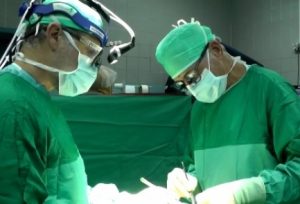
Hospitals throughout Israel saved 504 lives in 2016 attributed to organ transplants, compared with 433 in 2015.
• 1,116 patients still waiting for organ transplants, most of them needing a liver, kidney or heart.
• 61% of families approached about donating a dead loved one’s organs agreed.
By Maytal Yasur Beit-Or
A record 504 organ transplants were performed in Israel in 2016, a significant increase from the 433 in 2015, according to data from the National Transplant Center. The transplanted organs were taken from both the deceased and the living, giving new life and hope to terminally ill patients.
Despite the rise in organ donations and transplants in Israel, the center said that on the first day of 2017, 1,116 patients were still waiting for organs: 847 for a kidney, 104 for a liver, 63 for a heart, 89 for a lung, six for a heart and a lung, and seven for a kidney and a pancreas. In 2016, 122 patients, 11% of the patients on the waiting list, died before receiving the organs they needed.
According to the data, 274 operations were conducted in 2016 to harvest organs from the deceased, an increase of 12% over 2015 and an Israeli record.
The number of live donor transplants also jumped, with 222 kidney transplants in 2016, compared to 174 in 2015. Ninety-three kidney donors were relatives of the recipients, while 129 donors decided to give one of their kidneys to friends or strangers. A further eight liver lobe transplants from living donors were performed — in most cases parents who donated to their children.
Also in 2016, Israeli hospitals carried out 707 cornea transplants, with 923 patients still waiting for corneas.
The attitude toward organ donation is also changing for the better. Out of 140 families of brain-dead patients who were approached about donating their loved ones’ organs, 85 agreed, a record-setting assent rate of 61%.
Currently, 887,317 Israelis have signed organ donor cards, agreeing to donate their organs after their deaths.
Professor Rafi Beyar, chairman of the steering committee of the National Transplant Center, thanked the donors’ families for “their nobility in donating their loved ones’ organs at the hardest time of their lives, and saving the lives of others.”
“This year, too, those who work in the organ donation and transplant field had their hands full, and the numbers speak for themselves,” Beyar said.
However, he stressed that “the [organ] waiting lists are still long, and we must put our best efforts into public service messages to increase the public’s willingness to sign organ donor cards and donate their organs. We see a direct correlation between signing the card and an actual willingness to donate organs.”
Dr. Tamar Ashkenazi, director of the National Transplant Center, said: “Many people interested in donating a kidney contacted the transplant center this year. Anyone interested received initial information and guidance about the rest of the process. Some have already donated a kidney or are in the advanced stages of doing so. In the past two years, live donors have comprised about 40% of the transplant center’s activity, to the point where we have lines of donors and recipients waiting for the go-ahead for the transplant.”
View original Israel Hayom publication at:
http://www.israelhayom.com/site/newsletter_article.php?id=39411







 Israeli New Shekel Exchange Rate
Israeli New Shekel Exchange Rate